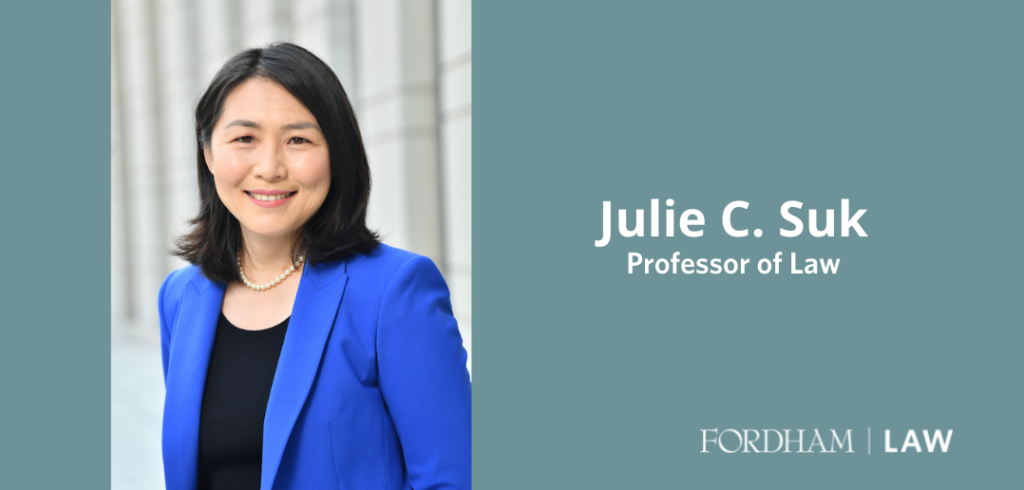In an op-ed for The New Republic, Professor Julie Suk examines the challenges of Article V and how it threatens the future of “multicultural liberal democracy.”
The United States is unlikely to be the multicultural liberal democracy that many of us want it to be by 2050, for the same reason that it falls short of that ideal today: The opponents of multicultural liberal democracy exercise disproportionate power in at least two of our most powerful institutions, the Supreme Court and the Senate, and will likely continue to do so for the foreseeable future. Six life-tenured justices on the Supreme Court ended women’s access to safe and legal abortion in June. Within the year, the Supreme Court will likely end affirmative action programs that promote racial minorities’ access to higher education. It also appears poised to validate state election maps that dilute the votes of racial minorities. And even though Congress can legislate to protect abortion access and racial minorities’ voting rights, the Senate has blocked those measures. By 2050, our increasingly multicultural society will be more thoroughly shackled by laws emanating from these unrepresentative bodies.
Minority rule by the Supreme Court and the Senate is a product of our constitutional design. Unless these institutions are reformed to distribute power more evenly to allow the American people to exercise power proportionately, multicultural liberal democracy will remain elusive. A crisis of legitimacy now plagues the Supreme Court, not only because of its most recent decisions, but because of how the audacious new majority was formed. The combination of untimely judicial deaths and Senate political hardball produced a court majority that is reversing the precedents that enabled the fuller participation of women and minorities in the life of the nation. If the justices had term limits, or if the Senate equally represented the American people rather than the states, we could be on a path to multicultural liberal democracy by 2050. But these changes would require amending the Constitution. And unfortunately, the U.S. Constitution has been functionally unamendable for about 50 years.
…
The Senate’s over-empowerment of voters in underpopulated states cannot even be changed through the ordinary constitutional amendment process, because Article V provides that the “equal suffrage” of the states in the Senate cannot be changed without the consent of every single state whose equal representation would be deprived. Given that no state would agree to reducing its share of power, there is virtually no politically feasible means by which the egregiously undemocratic design of our political and legal institutions can be amended under the rules of the existing Constitution.

